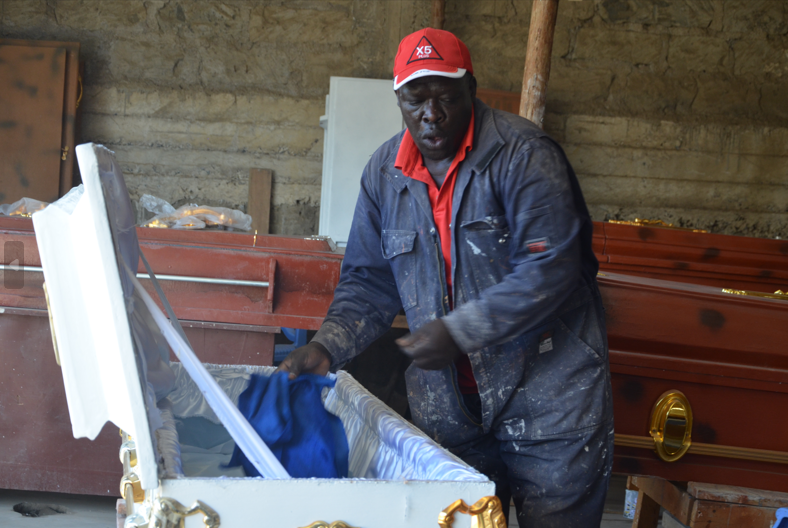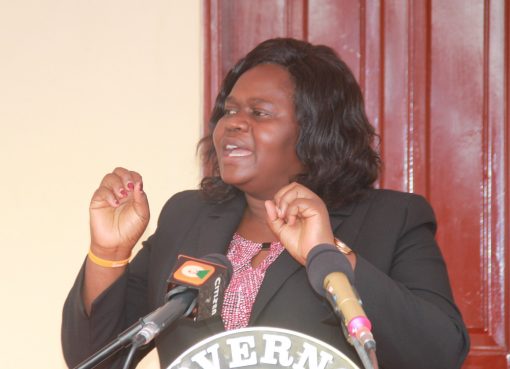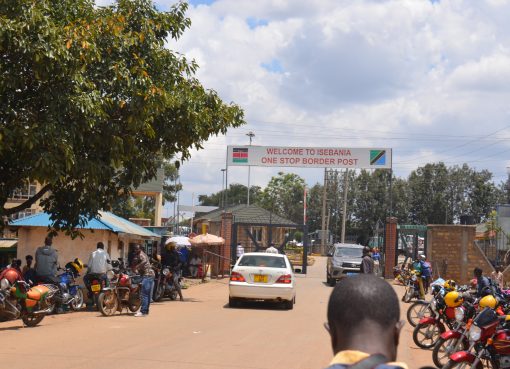Making coffins was not the initial idea of Paul Irungu. A need arose in his village when an elderly man died and there was nowhere to buy a coffin from to bury the deceased.
This prompted Irungu to use some carpentry skills he had acquired while training in a local workshop to try and make a coffin.
To his surprise, the 50-year-old man says despite being an attempt, everybody was pleased with his work and praised him for making a quality coffin.
This marked the beginning of his 25-year career that has gradually expanded to be a big business that earns him a fortune.
When we met Irungu at his workshop located at Mung’are streets of Narok Town, he seemed happy and contented though one could sense some form of loneliness.
He tells us that he was born in Kiambu town where he began his career back in 1996. At his village, he had made about 300 coffins before he thought of moving to Thika town to expand his business.
However, things didn’t go well for him, while in Thika as few meters from his business premises, numerous accidents occurred in a span of few months which created a notion that his coffin business was behind the deaths that occurred.
“One day, the traders invaded my business and destroyed all the ready-made coffins and ordered me to get out of the town or they would kill me. They thought I was the reason why people were dying in road accidents in the town,” he recalls.
The threat made Irungu to relocate in Narok town in 2005 to seek greener pastures as his home background seemed not interested in his business.
Though he struggled to begin from scratch in Narok town, Irungu says he did not give up because the business gave him a livelihood. “By the time I moved to Narok town, I was married and later blessed with two children. I am happy that my family is comfortable with what I do,” he reiterated.
When asked about his social life, Irungu says very few people want to be associated with him because of his business, with some not even willing to shake his hand. “I am a committed Christian. Sometimes when I go to church, people do not want to be associated with me. I see some pointing at me from a distance and no one would dare shake my hands,” he regrets.
Nevertheless, the man says the stigmatization has not stopped him from doing what he loves and he has pressed on to perfect his job.
“Sometimes I ask myself, if all coffin makers stop making coffins and shift to other jobs, who will provide coffins for the dead?” he wonders, asking the society to respect all professionals as everyone has a role to play to help mankind.
He is happy because his first born son who just completed high school awaiting to be admitted to the university, loves working in the workshop.
When asked about his memorable moments, he says that one day while in his workshop, two men visited him and one asked him to make a good coffin, describing the materials to be used and colour.
Few days later, the family of the man came looking for him saying their kin had died and left a notice of where they would get a coffin to bury his remains. “I was so shocked because I did not expect the deceased to have been making a coffin for himself. However, I gave the family the coffin and they seemed contented,” he recalls.
The shocking thing the coffin maker reveals to us is that there are seasons when his business is too high and other months, he makes very slim profits.
He says that in December, his business is flooded with customers who come to book coffins because of increased road accidents and killer flash floods.
Likewise, the coffin maker named the period between June and August, as good for his business because a number of elderly people die because of the cold weather experienced during this season.
“People should be careful during these months and exercise caution because a lot of deaths are reported at this time,” he reiterates.
Irungu says his coffins prices range from Sh. 8, 000 to Sh. 27, 000 depending on the quality of the materials used.
‘‘The business is well paying. During high seasons, I make profits amounting to hundreds of thousands. However, during low seasons, the profit is very little,” he continues.
Through his savings, Irungu says he has educated his children, opened a business for his wife and bought a hearse.
Irungu encourages young people not to remain idle but engage in any business that can bring food on the table.
By Ann Salaton and Simion Simbai





